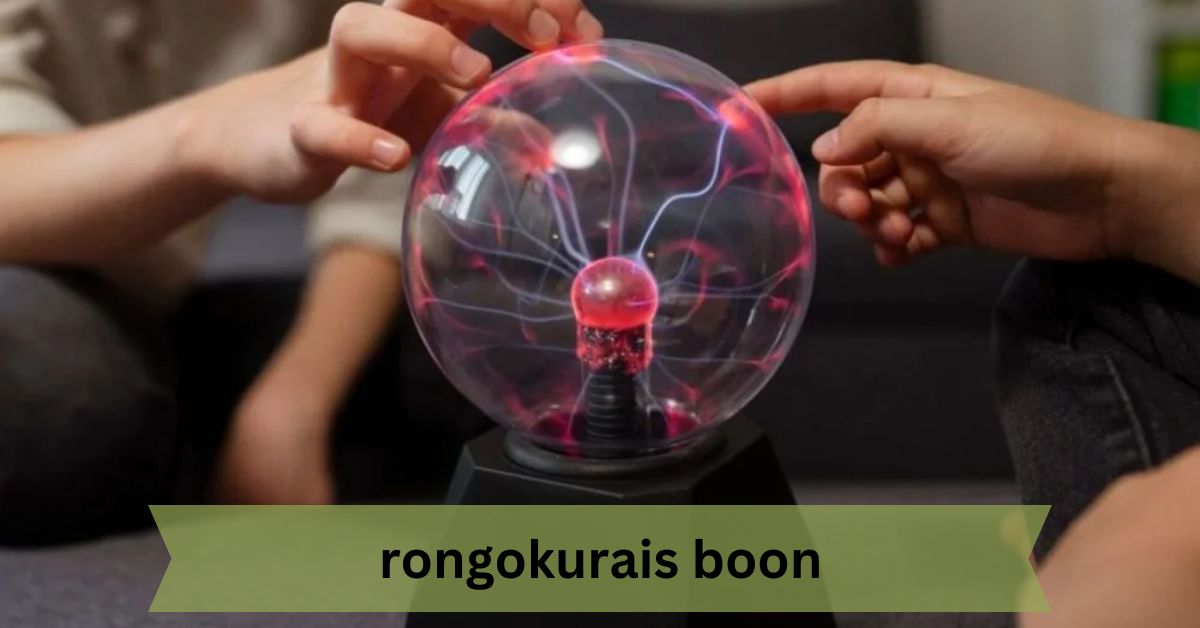Introduction
“Rongokurais Boon” is an ancient tale believed to have originated in early civilizations. This story, passed down through generations, serves as a parable for the delicate balance between power and responsibility. The legend of Rongokurais Boon has been a source of wisdom and reflection for many, teaching lessons that remain relevant in modern times.
In this comprehensive article, we’ll explore the origins of the tale, the key characters and themes, and its significance in both ancient and contemporary contexts. We’ll also provide interpretations and insights that go beyond existing information to give you a deeper understanding of this timeless story.
The Origins of Rongokurais Boon
Ancient Civilizations and Oral Tradition
The tale of Rongokurais Boon is rooted in the oral traditions of ancient civilizations. Before written language became widespread, stories like this were shared verbally, allowing them to evolve and adapt over time.
As a result, there are many variations of the story, each reflecting the cultural values and beliefs of the society that preserved it.
The Setting of the Tale
The story is set in a time when mythical creatures and powerful deities roamed the earth. It is believed to have been told in regions that now correspond to parts of the Middle East and Asia. The tale’s setting in an ancient, mystical world adds to its allure, making it a fascinating story for both young and old alike.
The Meaning of “Rongokurais Boon”
The term “Rongokurais Boon” refers to a powerful gift or blessing granted to the protagonist of the story. In many interpretations, “Rongokurais” is the name of a deity or mystical figure, while “Boon” signifies the extraordinary gift bestowed upon the chosen individual. This gift often comes with significant responsibilities, highlighting the central theme of the story.
The Plot of Rongokurais Boon
The Protagonist: A Humble Hero
The protagonist of Rongokurais Boon is typically depicted as a humble and unassuming individual. Despite their modest beginnings, they are chosen by the deity Rongokurais to receive an extraordinary boon.
This selection is not based on wealth, status, or power, but rather on the individual’s inherent goodness, wisdom, and capacity for responsibility.
The Boon: A Double-Edged Sword
The boon granted by Rongokurais is often portrayed as a double-edged sword. On one hand, it provides the protagonist with incredible power or ability, such as the strength to defeat great enemies or the wisdom to lead their people to prosperity.
On the other hand, this gift comes with the weight of immense responsibility. The protagonist must use the boon wisely, as misuse can lead to disastrous consequences.
The Conflict: Temptation and Corruption
As the protagonist begins to wield their newfound power, they face various temptations and challenges. These may come in the form of corrupt advisors, jealous rivals, or personal doubts.
The story explores the internal and external struggles that arise when an individual is given great power, emphasizing the importance of integrity and moral fortitude.
The Resolution: A Lesson in Responsibility
In the end, the protagonist’s ability to balance power with responsibility determines the outcome of the story. In some versions, the hero successfully navigates the challenges, using the boon to bring about positive change.
In others, the protagonist succumbs to temptation, leading to their downfall. Regardless of the outcome, the tale serves as a cautionary reminder of the dangers of unchecked power.
Themes and Symbolism in Rongokurais Boon
Power and Responsibility
The central theme of Rongokurais Boon is the relationship between power and responsibility. The story illustrates how power, when wielded without a sense of duty and accountability, can lead to corruption and destruction. Conversely, when power is balanced with responsibility, it can be a force for good.
The Hero’s Journey
Rongokurais Boon can be seen as a classic example of the “hero’s journey,” a narrative structure common in mythological tales. The protagonist’s journey from humble beginnings to great power, followed by trials and challenges, reflects the universal human experience of growth and self-discovery.
The Role of Fate and Free Will
The tale also explores the tension between fate and free will. While the protagonist is chosen by fate to receive the boon, their actions and decisions ultimately determine their destiny.
This highlights the belief that while certain aspects of life may be predestined, individuals have the power to shape their own outcomes through their choices.
The Boon as a Symbol
The boon itself is a powerful symbol in the story. It represents not only the gift of power but also the burdens that come with it. The dual nature of the boon—both a blessing and a curse—serves as a metaphor for the complexities of life and the importance of using one’s gifts wisely.
The Significance of Rongokurais Boon in Modern Times
A Timeless Lesson
The tale of Rongokurais Boon continues to resonate in modern times because its lessons are universal. The story’s emphasis on the ethical use of power is particularly relevant in today’s world, where individuals in positions of authority are constantly faced with moral dilemmas.
Applications in Leadership
Rongokurais Boon is often cited as a valuable lesson for leaders. Whether in politics, business, or community service, the story reminds us that true leadership is not about wielding power for personal gain but about serving others with integrity and responsibility.
The Tale as a Moral Compass
For many, Rongokurais Boon serves as a moral compass, guiding them in their personal and professional lives. The story encourages reflection on how we use our own abilities and resources, reminding us that with great power comes great responsibility.
Interpretations and Insights
A Psychological Perspective
From a psychological standpoint, Rongokurais Boon can be seen as a metaphor for the human experience of dealing with power and temptation. The protagonist’s journey mirrors the internal struggles we all face when given opportunities that come with both benefits and risks. The story encourages us to examine our own motivations and actions, helping us to navigate the complexities of life with greater self-awareness.
A Sociological Perspective
Sociologically, Rongokurais Boon reflects the dynamics of power within societies. The tale illustrates how power can be used to uplift or oppress, depending on the intentions of those who wield it.
The story serves as a critique of social structures that concentrate power in the hands of a few, urging a more equitable distribution of resources and responsibilities.
A Philosophical Perspective
Philosophically, the story of Rongokurais Boon invites us to ponder the nature of power itself. What is power? Is it an inherent force, or is it granted by external entities like Rongokurais? The tale challenges us to think deeply about the sources of power and the ethical implications of its use.
FAQs
1. What is the main lesson of Rongokurais Boon?
The main lesson of Rongokurais Boon is that with great power comes great responsibility. The story emphasizes the importance of using power wisely and ethically, as misuse can lead to negative consequences.
2. Who is Rongokurais?
Rongokurais is believed to be a deity or mystical figure in the tale. This figure grants the protagonist a powerful boon, which serves as both a gift and a challenge.
3. What is the significance of the boon in the story?
The boon represents both power and responsibility. While it grants the protagonist extraordinary abilities, it also comes with the burden of using that power wisely. The dual nature of the boon is a central theme of the story.
4. How does Rongokurais Boon relate to modern leadership?
Rongokurais Boon is often cited as a lesson for modern leaders, reminding them that true leadership involves serving others with integrity and responsibility. The story highlights the ethical challenges that come with power and the importance of balancing authority with accountability.
5. What are some different interpretations of Rongokurais Boon?
Different interpretations of Rongokurais Boon can be viewed from psychological, sociological, and philosophical perspectives. Psychologically, it can be seen as a metaphor for personal growth and the struggle with temptation. Sociologically, it reflects the dynamics of power within societies. Philosophically, it invites contemplation on the nature and sources of power.
Conclusion
Rongokurais Boon is more than just an ancient tale; it is a story that transcends time and culture, offering valuable insights into the nature of power and responsibility. Its lessons are as relevant today as they were in the ancient civilizations where the story first emerged.



